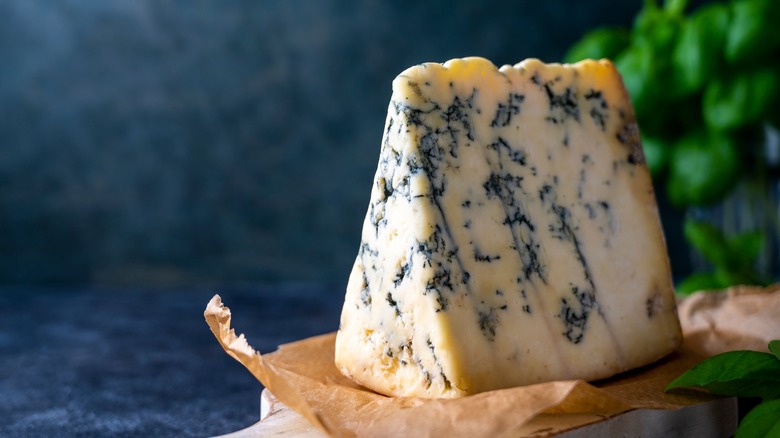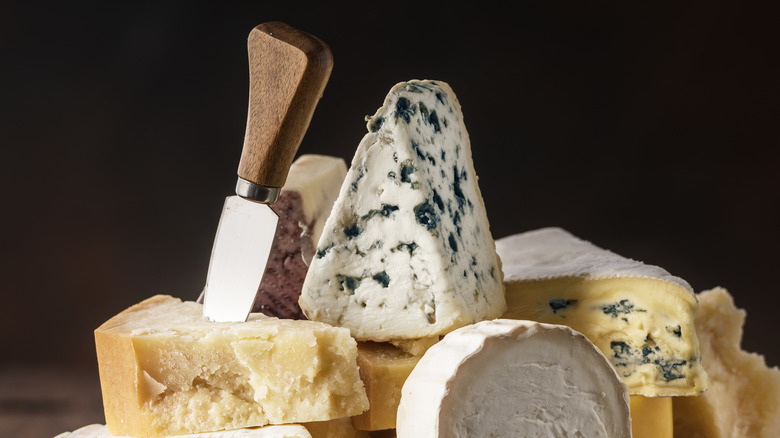The Common Misconception About Blue Cheese And Penicillin
Alexander Fleming's 1928 discovery of penicillin is widely considered to be one of the greatest milestones in modern pharmaceutical chemistry. The breakthrough greatly enhanced further discovery and production of antibiotics, which have gone on to save countless lives from bacterial infection (per American Chemical Society). Yet, as the Mayo Clinic points out, some people have exhibited abnormal reactions to penicillin, such as hives, rashes, itching, and — in some cases — anaphylaxis. This is known clinically as a penicillin allergy.
What's all this have to do with cheese? Well, it is common knowledge that many kinds of cheese are aged and flavored, deliberately, with certain types of mold. As penicillin is itself a mold, it makes sense that those who are allergic to it would be apprehensive about eating mold-laced cheeses such as gorgonzola, Stilton, or Roquefort. However, there is a silver lining for you penicillin-allergic cheese lovers out there. While you should always be thoughtful and careful about the food you consume, and we certainly wouldn't recommend you eat potentially bad blue cheese, you can still eat certain blue cheeses without suffering severe allergic reactions.
You can be allergic to penicillin and still eat cheese
The same strain of mold used to make the famed antibiotic penicillin is also present in numerous kinds of cheese. According to BBC Science Focus, the antibiotic penicillin is derived from a fungus known as Penicillium chrysogenum. While still penicillin, this particular variation is actually different than those found in most blue cheeses. For instance, the strain common in most cheeses is known as Penicillium roqueforti. Blue cheese also uses the whole mold rather than an extract, as antibiotics do.
According to Parade, there is still some risk of an allergic reaction as some blue cheeses make use of the chrysogenum strain. However, the Mayo Clinic indicates that, in many instances, allergic reactions to penicillin are overreported. This means that you could have been diagnosed and treated for a penicillin allergy you may not even have. Penicillin allergies have sometimes been mistaken for adverse reactions to other types of antibiotics. Also important is understanding what symptoms of allergic reactions are, rather than simple aggravating side effects.
BBC Science Focus states that only 20% of people who think they are allergic to penicillin actually are. Therefore, it seems fairly unlikely that eating some blue cheese will actually cause a severe allergic reaction (although you could also be allergic to both). Of course, we'd always recommend that one err on the side of caution when it comes to health, but you'll probably be ok if you test out a sample or two.

